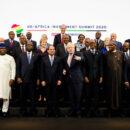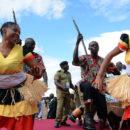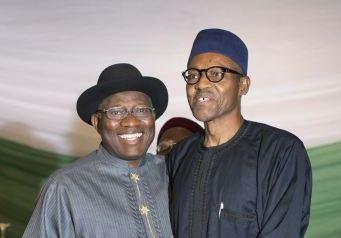DRC election ‘too flawed to be credible’ – civil society and Congolese diaspora speak out – By Kissy Agyeman-Togobo, Songhai Advisory

Songhai Advisory LLP is a bespoke business intelligence consultancy providing critical insight on market opportunities in Sub-Saharan Africa.
There is an African proverb which says that if you adopt a name, you must also inherit its affairs. In the Democratic Republic of Congo, recent post-electoral events have led people to question the very essence of democratic culture in the country, and to wonder whether the polity has failed to embrace the virtues of the country’s name.
Elections which took place on 28 November 2011 were noted by the EU observer mission as having “serious deficiencies” and warned that the bloc would “re-evaluate its support come the next stages in the Congo’s democratic process”. The US Carter Centre, which sent observers to the elections, said that the vote was “too flawed to be credible.” The Congolese Catholic Church, which had deployed the largest observer mission to the elections (30,000 people) said that the stated results “did not confirm the truth”. Meanwhile France’s ministry of foreign affairs has “deplored and criticized” the irregularities, as well as the “reported violence”. However, instead of calling for an annulment of the results – even though France acknowledged that the irregularities “marred” the vote – it has favoured dialogue and called for lessons to be learned. The same is true of the US. Whilst the Obama administration has been critical of the electoral process, it has not called for an annulment. In a country where civil society (both at home and abroad) is charged and frustrated, these denouncements amount to very little when the status quo is allowed to just continue and smack of self-serving interests.
“Too Flawed to be Credible”
In terms of the management of the elections on 28 November, the Carter Centre detailed impossibly high voter turnouts in some areas, as well as voter intimidation, which was commonplace. A member of the Congolese Diaspora community in the UK spoke of the intimidation and crack-downs on personal freedoms in the post-election period. “Back home, not many people have the internet but many have mobile phones. We send text messages to our friends and families back home about what is happening at home, because they are ill-informed. But now the government has cracked down on this too”. This was in relation to the government’s closing down of the networks to prevent the dissemination of information and the potential stirring up of Arab Spring-styled anti-government protests. Indeed, the clampdown in the DRC has been harsh, with Human Rights Watch reporting that at least 24 had been killed by the security forces in the aftermath. Many more may actually have been killed as the authorities reportedly launched a rapid clean up operation of the dead bodies.
“Defenders of Democracy, Where are You?”
For the Diaspora community, the festive period did not dampen the resolve to protest on the streets of London. Peaceful protests drew in the crowds in the run up to Christmas in Central London with people bearing placards which read “Defenders of Democracy, Where Are You?”, “Merci Tshisekedi Notre Coeur” (“Thank you Tshisekedi, Our Beloved”) and “Combatant Jusqu’a la Mort” (“We Will Fight Until We Die”). There was something of a carnival spirit about the demonstrations, with Congolese participants singing in the already lilting local language of Lingala, but the brusque images of death and destruction held up on placards sobered minds, for this was no celebration.
One Congolese activist who spoke with Songhai Advisory admitted that it was time to get more focussed and serious in spreading a strong message about the situation in Congo, and soon enough, the tone of the demonstrations subtly changed. Speeches in English were woven into the campaigns, displaying a resolve to reach out to sympathisers beyond the Congolese community. At the protest on Christmas Eve, organisers had managed to canvass support from Islington MP Jeremy Corbyn. To an expectant crowd he criticised the BBC for its scant coverage of the situation in DRCongo, which he claimed preferred to focus on Russia –which held an election at a similar time. He was also critical of Western countries, saying “if governments are serious about democracy, where are they in the DRC? There’s a wider agenda – Congo has been disgracefully treated”.
This “wider agenda” is something which is spoken about often by the Diaspora community in relation to the West’s attitude to the DRC. Indeed, as far as natural resources are concerned, the DRC is one of the richest countries in the world. It boasts a host of minerals including diamonds, copper, uranium and coltan (used in the production of mobile phones). The Congo River is also the second longest in Africa and has significant hydro-electric potential. The feeling that the West has been largely indifferent to the situation in the DRC is juxtaposed with the groundswell of support for Ivorian former opposition leader now president, Alassane Ouattara, when, following the announcement of results by the Constitutional Council over a year ago, he also maintained that he was the rightful winner. With the support of the international community, Ouattara’s opponent and former Ivorian president Laurent Gbagbo was toppled and subsequently extradited to The Hague to face war crimes charges. But such a scenario in the DRC is not on the cards. According to Jean-Marie Guehenno ,” (the U.N.’s former head of peacekeeping, and now a professor at Columbia University) there has been “a gradual political disengagement in Congo.” He continued: “There is definitely Congo fatigue after 11 years and billions of dollars. There is no appetite for repeating the Ivory Coast experience”. There is also the perception that the West is not particularly fond of outspoken, veteran opposition figure Tshisekedi, who may be more challenging to work with than Kabila. But as one Congolese blogger Mvemba Phezo Dizolele put it: “Whether or not diplomats like Tshisekedi, he is an icon to the Congolese … For a segment of the population, he is the man who best articulates their aspirations and dreams”.
View from the Ground
“The movement is quite homogenous, even we are surprised by the level of unity because beforehand, we were really divided. We want to reach out to all the Congolese youth organisations, hand out leaflets to all but above all, the Congolese. We will never negotiate with Kabila and a power sharing situation is not even imaginable. Without Congo, there are no mobile phones, there are no computers. It’s for this reason that the West is sowing hatred in Congo. If [the West] doesn’t listen, our mode of pacifist resistance will change.”
Congolese demonstrator
The Diaspora movement has been generally peaceful, but, as alluded to by a Congolese demonstrator, this could be changing. On 1st January 2012 it was reported that the government of the DRC denounced an attack on the nation’s Senate chief in Paris as the Diaspora community there who oppose Kabila fought back. A 76 year old senator, Leon Kengo, was attacked at the Gare du Nord station on Saturday 31st December – some reports speak of his teeth being knocked out and he was reportedly hospitalised in Paris. Congo’s Communications Minister Lambert Mende believes Kengo was targeted because he stood in the elections, (polling a mere 4%), yet to Tschisekedi’s supporters, these were votes which could have been directed towards their leader. Kengo also attended the inauguration of Kabila.
Conclusion
Kabila’s legitimacy is strongly challenged. However, the security force crackdowns and the heavy police presence – which halted Tshisekedi’s planned swearing in ceremony at the Martyrs’ Stadium in Kinshasa – will frustrate the plans of the opposition to pressurise Kabila out. But the Diaspora community, a step removed from Kabila’s force of arms, appears resolved to keep up the fight in applying pressure on Western capitals and also on their friends and families back home to persist. A proverb from the Congo says that “if you have spoiled your name at home, go and live elsewhere” and that is precisely what civil society movements in the Diaspora, vehemently opposed to Kabila, are hoping for.
View From the Ground
“We provide the remittances, so they must listen to us. My father, who is a civil servant, has not been paid for five years under Kabila. So yes, if we tell our families to continue to protest, they have to, because we [the Diaspora] are the ones sweating for them. We want to go on holidays, we want to go out to places, but we can’t. We must work for our immediate families here and also for our families back home, because the system does not provide for them. That is why Kabila must go.”
A Congolese father of one living and working in London who is also looking after his sister’s four children and his father back home.






